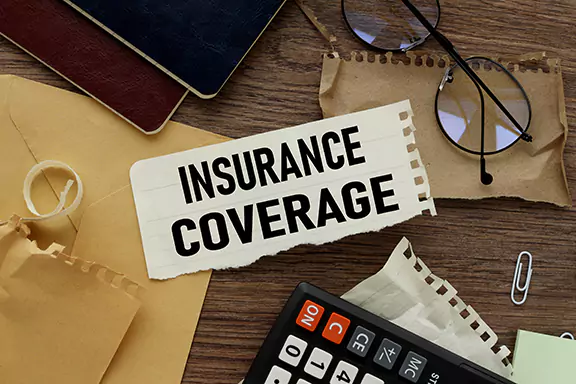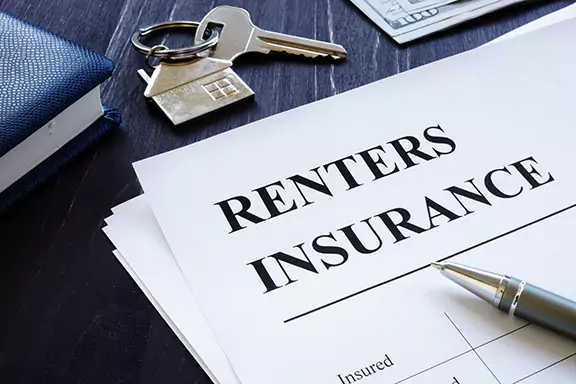Getting renters insurance can be an overwhelming experience, especially if you’re new to the U.S. and unfamiliar with the language of insurance policies. Nevertheless, it is important that you understand common renters insurance terms, as that can help you make informed decisions about how much coverage is needed to protect your personal belongings and finances.
This glossary clarifies key terms you need to know, starting with the most common and important ones you’ll encounter when buying renters insurance. By learning them, you can quickly familiarize yourself with the essentials before diving into more specific details.
Who Needs Renters Insurance Coverage?
Renters insurance is designed for anyone renting a home, apartment, or other living space. If you are a tenant, renters insurance can protect your personal belongings and provide liability coverage in case of accidents or injuries. For newcomers and immigrants in the U.S., renters insurance is an affordable way to safeguard your possessions from unexpected events like fire, theft, or water damage.
Many landlords require tenants to carry renters insurance as a condition of the lease, but even if it’s not required, it’s a smart investment for anyone renting a living space.
How Renters Insurance Differs from Homeowners Insurance
Renters insurance and homeowners insurance serve different purposes. Renters insurance is focused on protecting your personal property and providing liability coverage for accidents that occur within your rental unit. It does not cover the structure of the building—that is your landlord’s responsibility.
In contrast, homeowners insurance protects both the physical structure of a home and its contents. It also provides liability protection, but it is specifically for people who own their property, whereas renters insurance is for tenants.
Personal Property Coverage
Personal Property Coverage is one of the most important components of a typical renters insurance policy. It covers the cost to repair or replace your belongings—such as clothing, electronics, and furniture—if they’re damaged or stolen in a covered event. Covered perils often include theft, fire, and certain types of water damage. This coverage helps protect everything you own up to the policy limits.
What’s Typically Covered?
Furniture: Sofas, tables, beds.
Electronics: TVs, computers, gaming consoles.
Clothing: Everything from your daily outfits to winter coats.
What’s Not Covered?
Some high-value items may not be fully covered under a standard renters insurance policy. For example, expensive jewelry or collectibles may require scheduled personal property coverage—an additional type of property insurance that ensures these valuables are adequately protected. It’s also important to understand your coverage limits, which is the maximum amount your renter’s insurance will pay for a covered loss.
Liability Coverage
Liability Coverage is another crucial aspect of renters insurance. It protects you financially if you are found legally responsible for causing injuries to someone else or for damaging someone else’s property. For instance, if a visitor is injured while in your rental unit, liability coverage can help cover their medical bills, expenses and even legal fees if a lawsuit arises.
Why Liability Coverage Matters
Liability protection is essential because it can help you cover the costs and avoid substantial financial loss. If your child accidentally breaks a neighbor’s window or if your pet causes injury to a guest, liability claims could cost thousands of dollars. Having sufficient liability coverage ensures that you are not paying out of pocket for these expenses.
Additional Living Expenses (ALE)
Additional Living Expenses (ALE) coverage is part of most renters insurance policies and helps pay for costs if your rental unit becomes uninhabitable due to a covered loss like a fire or significant water damage.
What Does ALE Cover?
If you’re unable to stay in your rental unit, ALE will help pay for:
Hotel Bills: Temporary lodging while repairs are made.
Food Costs: Additional meals if you need to dine out due to a lack of cooking facilities.
Temporary Housing: Rental of another unit or temporary accommodation until your home is safe again.
For newcomers and immigrants who may not have local family or friends to lean on, ALE coverage can be a lifesaver by providing financial support for temporary housing until your rental unit is restored.
Replacement Cost Coverage vs. Actual Cash Value Coverage
When selecting renters insurance, you’ll often choose between Replacement Cost Coverage and Actual Cash Value (ACV) Coverage. Understanding the difference between these two is crucial to ensure your belongings are adequately protected.
Replacement Cost Coverage
Definition: This type of coverage pays for the replacement of items at today’s market price without considering depreciation.
Benefit: You receive enough money to replace lost or damaged items with brand-new ones, ensuring you’re not left with outdated replacements.
Actual Cash Value Coverage
Definition: ACV takes depreciation into account, meaning you will be reimbursed based on the item’s current market value.
Cost Consideration: This coverage generally costs less than replacement cost coverage, but you may receive less compensation because it factors in how much the items have depreciated.
Which Coverage is Right for You?
If you’re on a tight budget, actual cash value coverage can be a more affordable option. However, replacement cost coverage may be worth the extra cost because it allows you to fully replace damaged or stolen items without worrying about their depreciated value.

Coverage Limits and Deductibles
Coverage Limits are the maximum amounts that an insurance policy will pay for a covered loss. It’s important to calculate the value of your personal belongings accurately so you can select renters insurance that covers the appropriate coverage limits that meet your needs.
Deductibles
A deductible is the amount you must pay out of pocket before your insurance policy kicks in to cover a loss. Typically, the higher your deductible, the lower your monthly premium. Deciding on the right deductible is about balancing your own insurance budget with the level of risk you’re comfortable taking on.
For newcomers to the U.S., understanding how deductibles affect your premium can help you make a financially sound decision about your renters insurance policy. Consider how much you could comfortably afford to pay out of pocket if you needed to make a claim.
Additional Coverage Options
Many standard renters insurance policies don’t automatically cover everything. Here are some additional renters insurance coverage options to consider:
Scheduled Personal Property Coverage
Definition: This additional coverage is for high-value items that exceed the limits of your standard policy, such as jewelry, musical instruments, or collectibles.
When to Get It: If your valuable items are worth more than the typical coverage limits, adding scheduled personal property coverage is a wise choice.
Flood and Earthquake Coverage
Standard renters insurance does not cover damage from natural disasters like floods or earthquakes. If you live in a high-risk area, you may need to purchase separate flood insurance or earthquake coverage to ensure full protection.
Common Renters Insurance Claims and Filing Process
Filing a renters insurance claim can feel intimidating, but knowing the process will make it easier if the need ever arises.
How to File a Claim
Contact Your Insurance Provider: Report the loss as soon as possible.
Document the Damage: Take photos or videos of the damaged items and gather receipts or proof of ownership.
File the Claim: Submit the claim form, along with any required documentation, to your insurance company. Most claims can be filed online.
Tips for a Smooth Claims Process
Emergency Repairs: Take steps to prevent further damage and contact your insurance company to discuss emergency repairs that may be needed.
Keep Records: Maintain written documentation and photographs to support your claim and make the process as smooth as possible.
What Isn’t Covered by Renters Insurance
Renters insurance policies also come with exclusions—types of incidents that are not covered under your standard renters policy. Understanding these exclusions can help you determine if you need any additional coverage.
Exclusions
Natural Disasters: Damage from events like earthquakes or flooding is not typically covered. You’ll need separate coverage for these risks.
Neglect and Intentional Acts: Damages caused by neglect, intentional harm, or normal wear and tear are usually excluded.
High-Value Items: Expensive items like jewelry or rare collections may have limited coverage under a standard policy. To fully protect these items, you’ll need scheduled personal property coverage.
Wrapping Up: Mastering Renters Insurance Terms
Ready to save money on renters insurance and maximize your coverage options?
Check out our article “Renters Insurance Quotes Comparison: The Best 8 Platforms to Help You Find the Right Coverage“

